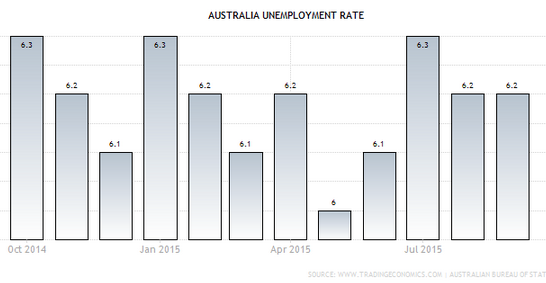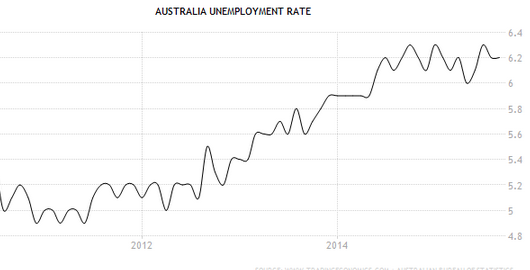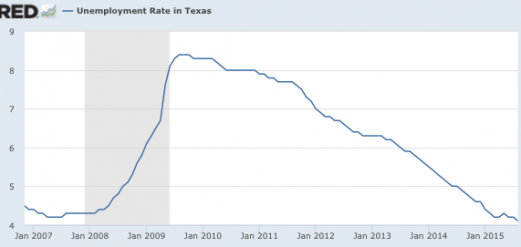Bernie Sanders’ silly “socialism”
The more I find out about Bernie Sanders the more I like him. But I just can’t get past that “socialist” label.
1. For years people like me have been called “McCarthyite” if we label someone a socialist. And now we are suddenly to believe that socialism in America is perfectly acceptable? So I’m no longer a McCarthyite?
2. Bernie Sanders claims he wants to make the US more like Denmark. But Denmark scores higher on the Heritage “Economic Freedom” ranking than does the US. How will Sanders boost economic freedom in America up to Danish levels? He doesn’t tell us. Although Denmark scores only slightly higher than the US, his social welfare plans would push the US far lower on the Heritage Economic Freedom ranking. So to catch Denmark he’d have to make the US massively more market-oriented in other areas. Will we have Denmark’s private fire companies?
It’s true that there are many countries in the EU with socialist parties. Here they are, with unemployment rates in parentheses:
Belgium (8.6%), Bulgaria (9.6%), France (10.2%), Greece (25.6%), Hungary (7.0%), Italy (12.7%), Luxembourg (5.7%), Portugal (12.4%), Spain (22.5%)
OK, Luxembourg is doing well.
And here are some European countries without (AFAIK) any major party that calls itself “socialist”:
Austria (6.0%) , Britain (5.6%), Denmark (6.0%), Finland (9.5%), Germany (4.7%), Ireland (9.7%), Netherlands (6.9%), Sweden (7.5%)
[Update: I should not have relied on Wikipedia. Garrett M points out that the Netherlands does have a socialist party.]
Bernie Sanders likes to say that he favors the Scandinavian model, but doesn’t seem to realize that the Nordic countries view the socialist label as toxic. The term ‘socialism’ used to actually mean something. It meant opposition to capitalism. It meant government ownership of the means of production. The socialist parties in southern Europe actually favored socialism when they first choose their name. Yes, they did edge somewhat away from government ownership of industry in the neoliberal era, but the name stuck. And they are still more socialist than northern Europe.
So why would Bernie Sanders call himself a socialist, and not a social democrat? I’m going to give him the benefit of the doubt, and assume he’s a little bit ignorant and a little bit eccentric. However, not only does he not favor the Nordic economic policies that earned those countries high rankings in economic freedom, he doesn’t seem to favor their paternalistic social policies either.
You might say this stuff doesn’t matter, what matters is “substance.” Really? Is American politics about “substance”? What is the “substance” of Donald Trump’s tax plan to go after the hedge fund owners? How will he do that? What is the “substance” of Hillary Clinton’s true underlying views on the TPP? American politics is about many different things, but “substance” is certainly not one of them.
Almost overnight the term ‘socialism’ has gone from being toxic in America, to non-toxic. As I indicated, that doesn’t really tell us anything interesting about Bernie Sanders, he’s just confused. But it just may tell us something important about America.
PS. The left in America likes to think of itself as “reality-based” and the right as being “faith-based.” But that’s not how things work in the rest of the world. Elsewhere, Socialists oppose reforms to make the economy better, they are the new reactionaries. Here’s a recent example from the FT:
Portugal’s bonds started the day looking queasy, and they haven’t picked up since.
The problem is politics. Acting prime minister, the centre-right Pedro Passos Coelho, has still not been able to forge the coalition he heeds to govern with the opposition socialists. (Elections were held at the start of this month, and while Mr Passos Coelho won the most votes, he did not snag large enough share of the vote to govern alone.)
Analysts at RBS warn that the political situation in the country is more complicated than many assume.
The ball is in the court of the defeated Socialist party – they could either support centre-right PÃ F, or form a coalition with the radical left. The first has always been the base case of analysts; yesterday however Socialist leader Costa declared his party was closer to an agreement with anti-austerity parties and negotiations with PÃ F were interrupted.
We now see a 50% probability of a left-wing government, which would halt the country’s reform momentum and would likely start rolling back the reforms already implemented. Such political risk adds up to Portugal’s worrying economic fundamentals.
And check out how Brazil’s socialists are doing. (A few years ago Krugman praised their policies.) And how about Venezuela? (praised by Corbyn) How about Greece? How’d that negotiating advice from Stiglitz and Sachs work out? Yes, I’m cherry picking. But when I read America leftists I sometimes have the impression that they have no idea what’s going on in the rest of the world. If America ever adopts socialism is will look far more like the Brazilian variety than the Danish variety.
PPS. From the list above, it sort of looks like socialism appeals to Catholic and Greek Orthodox countries. But my hunch is that the true cultural divide is language, not religion. Northern Belgium, Bavaria, Ireland, and Austria are all Catholic regions, and all speak non-Latin languages. And all four places are prosperous. The cultural dividing line in Europe is not at the Belgium/Netherlands border, it runs right through the center of Belgium. It’s probably more correlated with language than religion.
PS. I have a much more important post over at Econlog.




